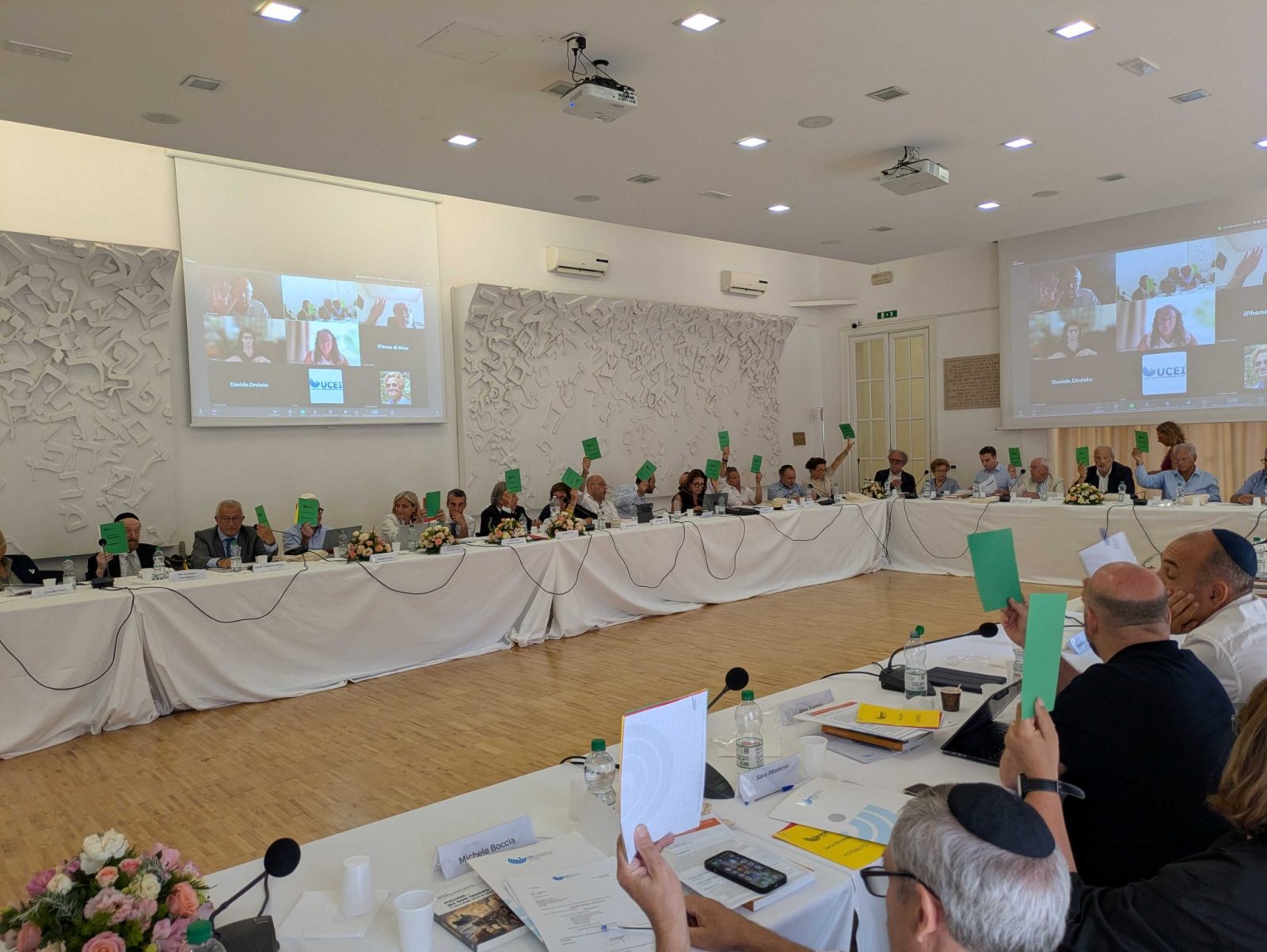UCEI – The 2024 year-end financial report approved. Elections for the new Council on December 14

The aftermath of the October 7 attacks, the ensuing war against Hamas, and the wave of antisemitism deeply wounded Italian Jewry’s collective consciousness. The future is full of challenges and questions as an important institutional phase comes to a close. On July 6, the Council of the Union of Italian Jewish Communities (UCEI) convened in Rome to approve the 2024 year-end financial report. This was the last meeting for the council’s fourth-year term, which will end on December 14 with the election of new delegates.
The 2024 year-end financial report was unanimously approved. David Romanin Jacur, Councilor for Finances, explained that the results “are more than satisfactory, with an operating surplus, which reflects the solidity of the institution’s economic management.” However, the strategic challenges ahead are numerous. The most delicate of these regards the Eight per thousand tax, which is UCEI’s major source of income. “It is not easy to predict the impact that the wave of antisemitism following the tragic events of October 7 will have,” said Jacur. (In Italy, taxpayers can allocate 0.8% of their annual income tax to a recognized religious denomination or to the Italian state for social or humanitarian purposes).
Along with financial issues, the report provided an extensive overview of UCEI’s activities, touching on critical areas of Italian Jewish life, including education, social support, historic and property preservation, security, and the fight against antisemitism at the national and European levels, as well as activities in Southern Italy.
Israel’s Ambassador to Italy, Jonathan Peled, opened the meeting by highlighting the uncertainties ahead in the Middle East and the rise in antisemitic episodes in Italy since October 7. “We must calm the dangerous rhetoric against Israel and Jews that is so often used to gain political consensus,” he said.
“To deal with this new wave of antisemitism, a new social pact is needed,” said Pina Picierno, the vice president of the European Parliament, also a guest of the UCEI’s Council. “Focusing on Holocaust Remembrance is no longer enough. Institutions, political parties, civil society, and culture must share responsibility. We need a comprehensive strategy centered on victims of antisemitism that intervenes on both the legal and cultural levels with effective tools,” said Picierno, (Democratic Party).
A new publication by UCEI goes in this direction. Titled Parole in conflitto (Words in Conflict), it is a compendium that aims to counteract the linguistic distortions that emerged in public conversations after October 7. “From Zionism to UNRWA, we aim to provide readers with keywords to better understand what is happening in the Middle East,” said Davide Jona Falco, the Councilor for Communication. In the preface, UCEI President Noemi Di Segni highlights the necessity “to recover a vocabulary favoring dialogue” and denounces “the danger of manipulating words, which can generate new forms of intolerance.” Rabbi Giuseppe Momigliano offered a reflection on the theme of responsibility. He recalled the story of Moses and his brother Aaron, who were both denied the right to enter Israel. “The severity of Moses’s punishment teaches us that the greater the responsibility, the greater the accountability for one’s actions.”
Much attention was devoted to policies for new generations among the strategic themes. Simone Mortara, the Councilor for Youth, presented the 2024 activities, which included a new project titled Nosei Or (“Bearers of Light” in Hebrew), meant to share Jewish life opportunities with small Jewish communities. Saul Meghnagi presented another project aimed at high school students that reflects on the role of Holocaust remembrance in the current public conversation.
